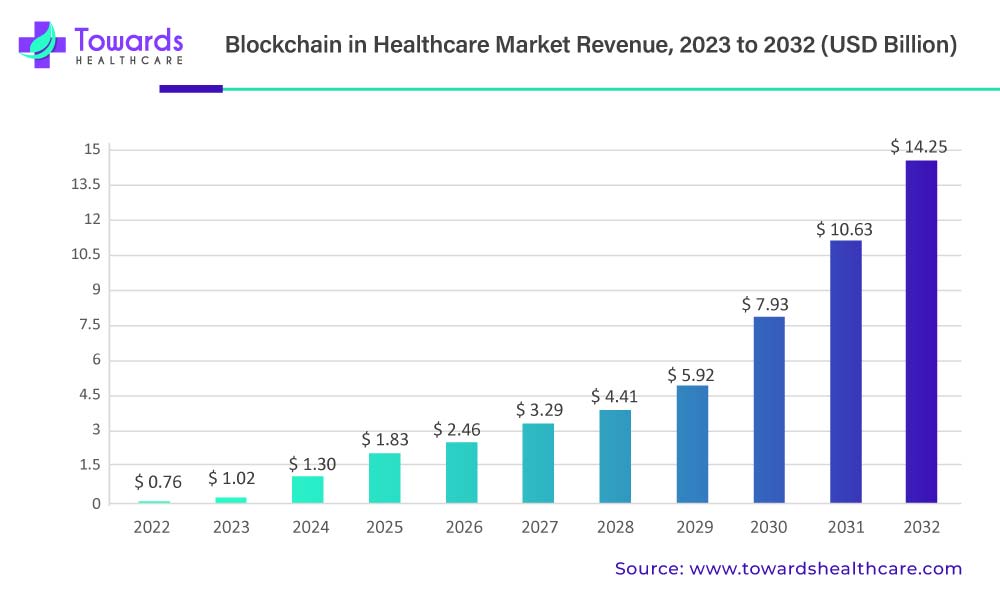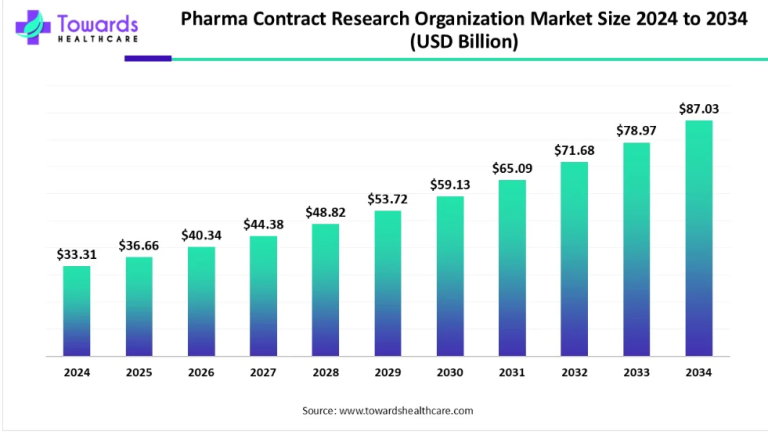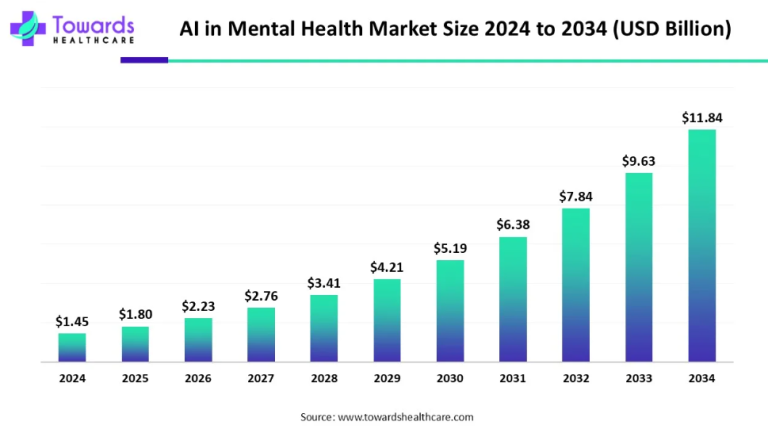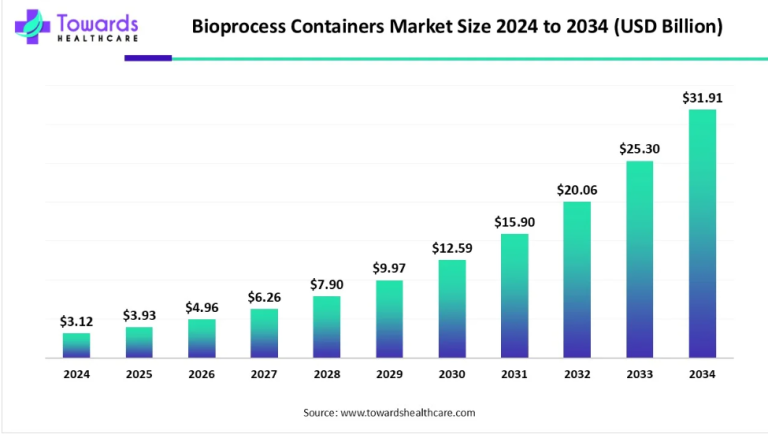
Technological advancements continue to shape and redefine industry landscapes. Among these innovations, blockchain technology emerges as a revolutionary force, promising to revolutionize the healthcare sector in profound ways. As of 2022, the global blockchain in healthcare market had already soared to an impressive USD 0.76 billion, with projections indicating a staggering leap to approximately USD 14.25 billion by 2032. Such exponential growth, with a robust Compound Annual Growth Rate (CAGR) of 34.02% from 2023 to 2032, underscores the transformative potential of blockchain within healthcare ecosystems worldwide.
Understanding the Dynamics of Blockchain in Healthcare
Leveraging Decentralization for Enhanced Security and Transparency
Blockchain, the underlying technology behind cryptocurrencies like Bitcoin, operates on a decentralized ledger system. This decentralized architecture offers inherent security and transparency, two critical pillars of trust within the healthcare domain. By distributing data across a network of nodes rather than storing it in a centralized database, blockchain mitigates the risk of single points of failure and unauthorized access, thus fortifying data integrity and confidentiality.
Facilitating Seamless Data Interoperability and Exchange
Interoperability remains a longstanding challenge in healthcare, hindering efficient data exchange and collaboration among disparate stakeholders. Blockchain, with its immutable ledger and smart contract functionalities, holds the potential to overcome these hurdles by enabling seamless data interoperability. Through standardized protocols and cryptographic verification mechanisms, blockchain facilitates secure and transparent data exchange across healthcare entities, paving the way for enhanced care coordination and patient outcomes.
For the short version of this report, or any queries feel free to reach us @ https://www.towardshealthcare.com/personalized-scope/5017
Empowering Patients through Data Ownership and Control
In traditional healthcare paradigms, patients often lack control over their health data, leading to concerns regarding privacy and consent. Blockchain empowers individuals by granting them ownership and control over their personal health information. Through encrypted keys and decentralized identifiers, patients can securely manage access permissions and selectively share data with healthcare providers, fostering a patient-centric approach to care delivery.
Exploring Key Market Drivers and Growth Catalysts
Rising Adoption of Electronic Health Records (EHRs) and Health Information Exchange (HIE)
The proliferation of Electronic Health Records (EHRs) and Health Information Exchange (HIE) initiatives worldwide serves as a primary driver fueling the growth of the blockchain in healthcare market. As healthcare organizations increasingly transition towards digitized record-keeping systems, the need for secure and interoperable platforms becomes paramount, driving demand for blockchain solutions that streamline data sharing and enhance information governance.
Growing Embrace of Telemedicine and Remote Patient Monitoring
The global COVID-19 pandemic has accelerated the adoption of telemedicine and remote patient monitoring solutions, amplifying the need for robust infrastructure to support remote healthcare delivery models. Blockchain, with its decentralized architecture and cryptographic security measures, emerges as a foundational technology underpinning telehealth ecosystems, ensuring the integrity and confidentiality of patient data transmitted across virtual channels.
Regulatory Initiatives and Compliance Imperatives
Regulatory frameworks play a pivotal role in shaping the trajectory of blockchain adoption within the healthcare sector. Governments and regulatory bodies worldwide are increasingly recognizing the potential of blockchain to address key challenges such as data security, interoperability, and patient privacy. Initiatives like the Health Insurance Portability and Accountability Act (HIPAA) in the United States and the General Data Protection Regulation (GDPR) in Europe underscore the importance of regulatory compliance in driving blockchain integration across healthcare enterprises.
Navigating Challenges and Overcoming Barriers
Addressing Scalability and Performance Concerns
While blockchain holds immense promise for transforming healthcare ecosystems, it is not without its challenges. Scalability and performance limitations inherent to certain blockchain protocols pose significant hurdles to widespread adoption. Innovations such as sharding, sidechains, and layer-2 solutions are being actively explored to enhance blockchain scalability and throughput, ensuring seamless integration with existing healthcare infrastructure.
Ensuring Data Privacy and Regulatory Compliance
Privacy and regulatory compliance remain paramount considerations in the design and implementation of blockchain solutions for healthcare. Striking the right balance between data transparency and confidentiality requires robust encryption mechanisms, access controls, and audit trails to safeguard sensitive health information while adhering to regulatory mandates. Collaborative efforts between technology providers, regulators, and healthcare stakeholders are essential to navigating these complex legal and ethical landscapes.
Bridging the Digital Divide and Promoting Inclusive Access
As blockchain-driven innovations proliferate within healthcare, it is imperative to address digital divide disparities and ensure equitable access to emerging technologies. Initiatives aimed at digital literacy, community engagement, and infrastructural investments are crucial for bridging the gap and extending the benefits of blockchain-enabled healthcare solutions to underserved populations and resource-constrained settings.
Dominance of Biopharmaceutical and Medical Device Firms
In 2022, the biopharmaceutical and medical device firms emerged as frontrunners in the blockchain healthcare market, commanding the largest market share in the end-use sector. This dominance underscores the industry’s recognition of blockchain’s capabilities in streamlining processes, securing sensitive data, and fostering innovation.
Projected Growth in Clinical Data Exchange and Interoperability
Looking ahead, the blockchain technology’s clinical data exchange and interoperability sector are poised for substantial growth, with experts forecasting a significant Compound Annual Growth Rate (CAGR). This projection highlights the increasing adoption of blockchain solutions to facilitate seamless data exchange while ensuring data integrity and privacy.
Addressing Vulnerabilities in Clinical Data Management
One of the critical challenges facing the healthcare industry is safeguarding clinical data against breaches and counterfeiting. Clinical data interchange and interoperability processes are particularly susceptible to such threats, necessitating robust security measures and innovative solutions. Blockchain technology offers a decentralized framework that enhances data security, mitigates risks, and fosters trust among stakeholders.
Public Sector Leadership in Network Adoption
In 2022, the public sector emerged as the leader in blockchain network adoption within the healthcare industry. This trend reflects the growing recognition of blockchain’s potential by government entities and regulatory bodies. Public-sector initiatives play a pivotal role in driving blockchain adoption, fostering collaboration, and setting standards for interoperability and data exchange.
European Market Dominance and Regulatory Support
Europe emerged as a frontrunner in the blockchain healthcare market, boasting the largest market share by region in 2022. Several factors contribute to Europe’s dominance, including the rising incidence of data breaches, supportive government regulations, robust reimbursement schemes, heightened awareness, and investments in training programs. This conducive environment propels innovation, fosters collaboration, and accelerates blockchain adoption across the healthcare ecosystem.
Leveraging Blockchain for Research and Development
According to the Organization for Economic Cooperation and Development (OECD), blockchain applications such as Research Foundry are revolutionizing healthcare R&D by facilitating rights management and consent for data sharing and access. Moreover, increased investments in healthcare record systems, wearable device cryptography, and medical examination systems herald a promising future for the blockchain healthcare market. These developments underscore the industry’s commitment to leveraging technology to improve patient outcomes, enhance data security, and drive innovation.
Unlock Infinite Advantages: Subscribe to Annual Membership
To own our research study instantly, Click here @ https://www.towardshealthcare.com/price/5017
To read more about Blockchain in Healthcare Market, Visit:



